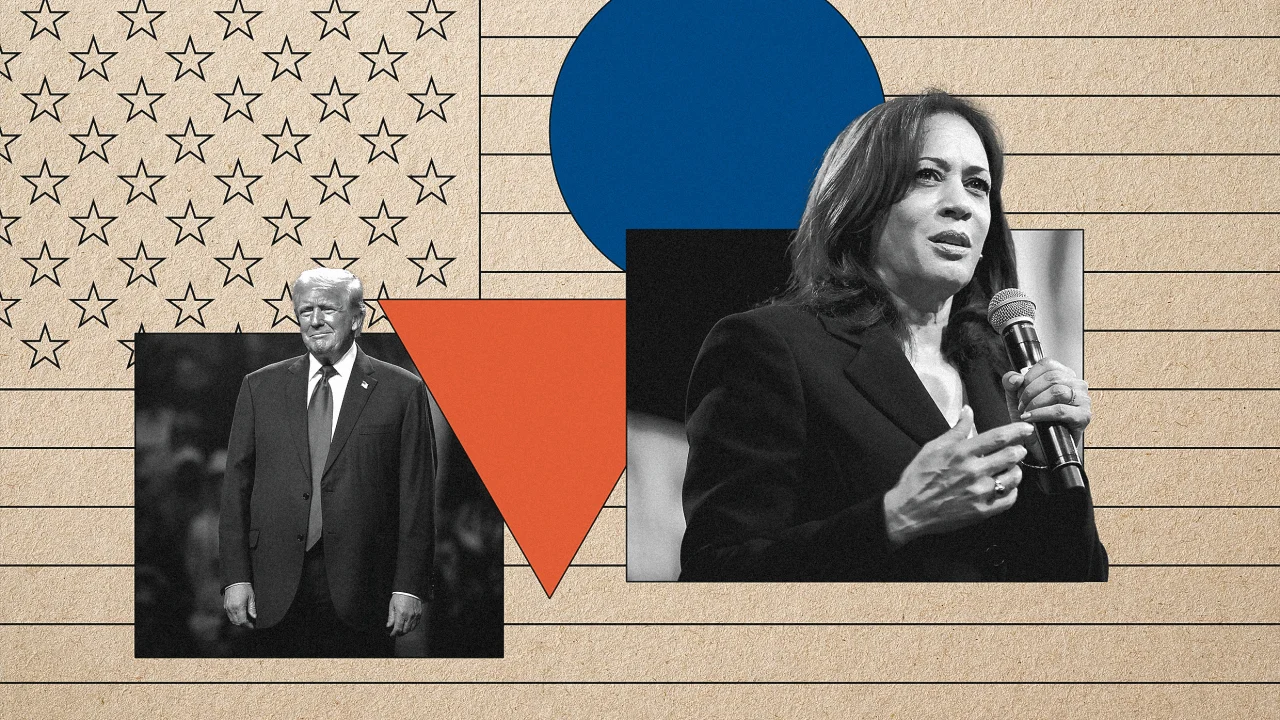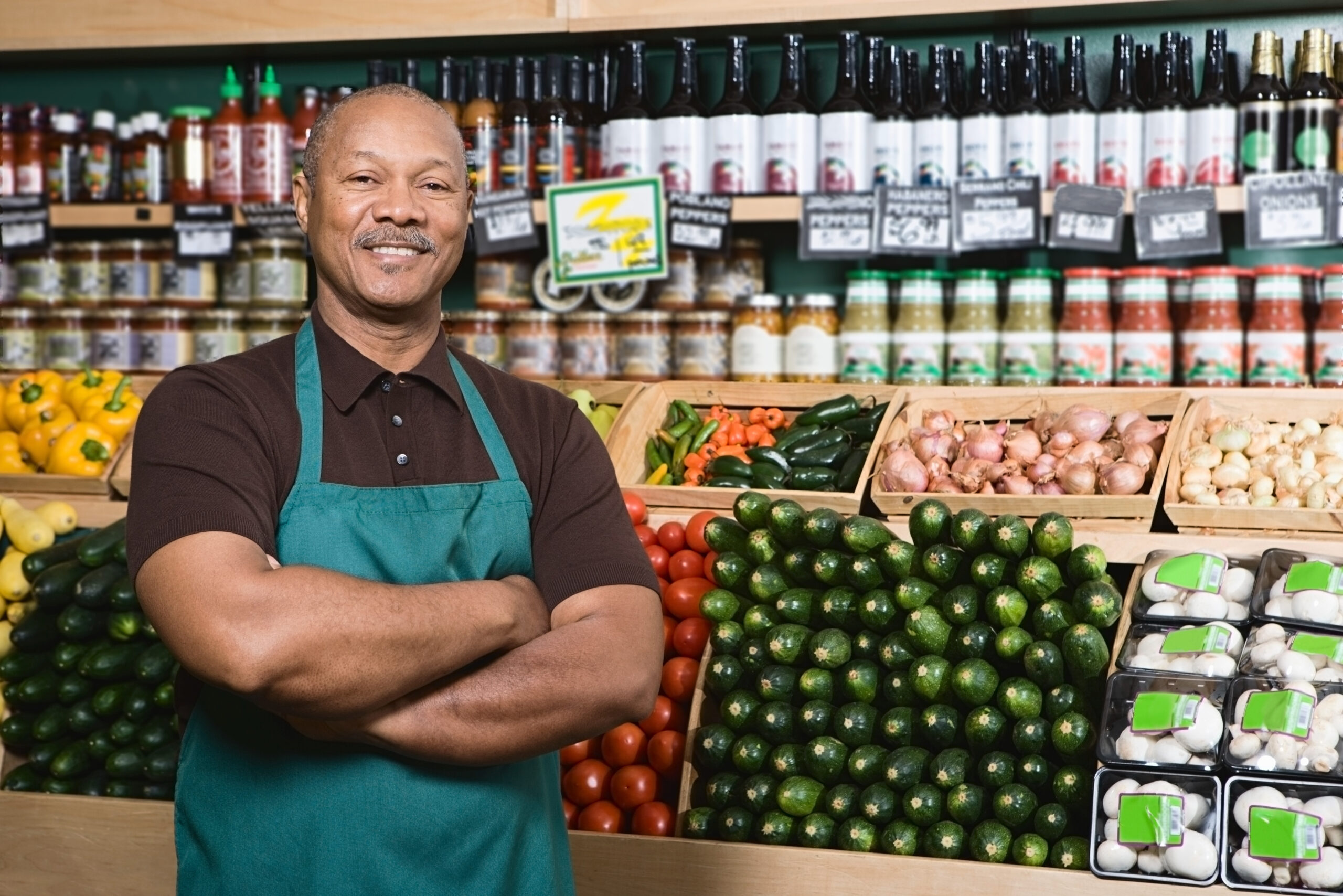Kamala Harris just put on a master class in how to trigger Donald Trump
About a half-hour into the second and final scheduled presidential debate of 2024, Donald Trump began shouting about the single most important issue that keeps America’s middle-class voters up at night. “In Springfield, they’re eating the dogs—the people that came in. They’re eating the cats,” Trump said. “And this is what’s happening in our country. And it’s a shame.” One of the evening’s moderators, ABC News’s David Muir, had wisely prepared for this digression—a reference to a vile, racist, dangerous lie that Haitian immigrants in Ohio are eating family pets, which Trump’s vice presidential candidate, JD Vance, enthusiastically boosted earlier on Tuesday. ABC News had reached out to the city manager of Springfield, Muir told Trump, and confirmed that they’d received no credible reports of animal abuse in the local immigrant community. Trump, undeterred, responded to this revelation with perhaps his most honest response of the night. “Well, I’ve seen people on television,” he told Muir. “We’ll find out.” The last presidential debate was a dread-inducing redux of the same uninspiring choice that voters faced four years earlier: President Joe Biden, a moderate Democrat who struggled to keep his train of thought, and Trump, an aspiring authoritarian whose strength was telling lies confidently and then grinning for the camera afterwards. Biden’s dismal showing prompted him to pull out of the race under pressure from voters, donors, and elected Democrats, and the party quickly united behind Vice President Kamala Harris as the nominee. Tuesday’s event was the only time, for now, that she and Trump are set to appear together before voters cast their ballots, in a race that is tight both nationally and in the handful of swing states that, under this country’s deeply broken Electoral College system, will decide who wins the presidency this fall. Strictly in terms of optics, the debate was good evidence that Democrats made a prudent choice. Trump looked as bad next to Harris as Biden had looked next to Trump. The former president spent most of last night squinting grimly into the middle distance, as if he were trying to read cue cards that did not exist. Harris, meanwhile, successfully goaded Trump into more than one incensed rant: The aforementioned diatribe about pets, for example, came after she needled him about the silly theatrics at his campaign rallies. (“He talks about fictional characters like Hannibal Lecter! He will talk about windmills that cause cancer!”) Later, Harris’s assertion that world leaders are “laughing” at Trump prompted him to invoke his ties to Hungary’s far-right prime minister, Viktor Orban, whom he called “one of the most respected men” in the world. “They call him a strong man,” Trump explained gravely, a sentence which suggests that he does not know that that is generally considered a bad thing. The challenge Harris faced, of course, is that it is impossible to have a useful debate when one of the candidates is trying to discuss policy, and the other one is shrieking about, again, demented lies about immigrants eating pets. As a result, Harris spent much of the event’s second half addressing voters directly, like a weary parent determined to have a fleeting moment of adult conversation between a toddler’s rapid-fire questions about dinosaurs. “One thing you will not hear him talk about,” Harris said during her riff about Trump’s rallies, “is you. You will not hear him talk about your needs, your dreams, and your desires.” Sure enough, by the end of the night, Trump barely seemed to care anymore: When the moderators asked if he had finalized his long-promised proposal to replace the Affordable Care Act, Trump replied that he has “concepts of a plan,” which is the same thing I told my parents during my senior year of college when they asked if I’d found a job yet. Trump’s policy agenda has long consisted mostly of burped-up talking points from whichever conservative media outlet he most recently encountered. For most of his presidency, that tended to be Fox News, which both put him within the GOP mainstream and also briefly made Steve Doocy one of the most influential people in America. Since leaving office, however, he’s steeped himself in the darker, weirder corners of the right-wing media ecosystem and the conservative movement, gleaning his news from Newsmax, One America News Network, and whichever Truth Social posts happen to cast him in the most flattering light. Tuesday was the first time a national audience got to meet this version of Trump: an elderly, rapidly deteriorating conspiracy theorist whose talking points are red meat for a sliver of his die-hard sycophants, but gibberish to normal people watching at home who have work in the morning, and are just trying to make up their minds about who to vote for, so that they can watch something else. Trump’s wild-eyed claim that abortion laws in Democratic-controlled states allow doctors to “ex

About a half-hour into the second and final scheduled presidential debate of 2024, Donald Trump began shouting about the single most important issue that keeps America’s middle-class voters up at night. “In Springfield, they’re eating the dogs—the people that came in. They’re eating the cats,” Trump said. “And this is what’s happening in our country. And it’s a shame.”
One of the evening’s moderators, ABC News’s David Muir, had wisely prepared for this digression—a reference to a vile, racist, dangerous lie that Haitian immigrants in Ohio are eating family pets, which Trump’s vice presidential candidate, JD Vance, enthusiastically boosted earlier on Tuesday. ABC News had reached out to the city manager of Springfield, Muir told Trump, and confirmed that they’d received no credible reports of animal abuse in the local immigrant community.
Trump, undeterred, responded to this revelation with perhaps his most honest response of the night. “Well, I’ve seen people on television,” he told Muir. “We’ll find out.”
The last presidential debate was a dread-inducing redux of the same uninspiring choice that voters faced four years earlier: President Joe Biden, a moderate Democrat who struggled to keep his train of thought, and Trump, an aspiring authoritarian whose strength was telling lies confidently and then grinning for the camera afterwards. Biden’s dismal showing prompted him to pull out of the race under pressure from voters, donors, and elected Democrats, and the party quickly united behind Vice President Kamala Harris as the nominee.
Tuesday’s event was the only time, for now, that she and Trump are set to appear together before voters cast their ballots, in a race that is tight both nationally and in the handful of swing states that, under this country’s deeply broken Electoral College system, will decide who wins the presidency this fall.
Strictly in terms of optics, the debate was good evidence that Democrats made a prudent choice. Trump looked as bad next to Harris as Biden had looked next to Trump. The former president spent most of last night squinting grimly into the middle distance, as if he were trying to read cue cards that did not exist.
Harris, meanwhile, successfully goaded Trump into more than one incensed rant: The aforementioned diatribe about pets, for example, came after she needled him about the silly theatrics at his campaign rallies. (“He talks about fictional characters like Hannibal Lecter! He will talk about windmills that cause cancer!”)
Later, Harris’s assertion that world leaders are “laughing” at Trump prompted him to invoke his ties to Hungary’s far-right prime minister, Viktor Orban, whom he called “one of the most respected men” in the world. “They call him a strong man,” Trump explained gravely, a sentence which suggests that he does not know that that is generally considered a bad thing.
The challenge Harris faced, of course, is that it is impossible to have a useful debate when one of the candidates is trying to discuss policy, and the other one is shrieking about, again, demented lies about immigrants eating pets. As a result, Harris spent much of the event’s second half addressing voters directly, like a weary parent determined to have a fleeting moment of adult conversation between a toddler’s rapid-fire questions about dinosaurs. “One thing you will not hear him talk about,” Harris said during her riff about Trump’s rallies, “is you. You will not hear him talk about your needs, your dreams, and your desires.”
Sure enough, by the end of the night, Trump barely seemed to care anymore: When the moderators asked if he had finalized his long-promised proposal to replace the Affordable Care Act, Trump replied that he has “concepts of a plan,” which is the same thing I told my parents during my senior year of college when they asked if I’d found a job yet.
Trump’s policy agenda has long consisted mostly of burped-up talking points from whichever conservative media outlet he most recently encountered. For most of his presidency, that tended to be Fox News, which both put him within the GOP mainstream and also briefly made Steve Doocy one of the most influential people in America. Since leaving office, however, he’s steeped himself in the darker, weirder corners of the right-wing media ecosystem and the conservative movement, gleaning his news from Newsmax, One America News Network, and whichever Truth Social posts happen to cast him in the most flattering light.
Tuesday was the first time a national audience got to meet this version of Trump: an elderly, rapidly deteriorating conspiracy theorist whose talking points are red meat for a sliver of his die-hard sycophants, but gibberish to normal people watching at home who have work in the morning, and are just trying to make up their minds about who to vote for, so that they can watch something else. Trump’s wild-eyed claim that abortion laws in Democratic-controlled states allow doctors to “execute the baby” after birth earned a deadpan fact-check from ABC News’s Linsey Davis, who dutifully informed viewers that “there is no state in this country where it is legal to kill a baby after it’s born.”
In the past, many of Trump’s political rivals have struggled to figure out how to engage with him: Take him too seriously, and you risk getting down in the mud with him; take him too lightly, and you risk coming across as condescending and out-of-touch. On Tuesday, Harris managed to thread this needle as well as anyone, delivering a solid pitch to voters while also poking fun at her opponent’s inability to go more than three sentences without pivoting to a xenophobic screed.
Trump, who took the unusual step of personally defending his performance in the spin room afterwards, left the debate sounding angry and afraid: afraid of losing the election, sure, but definitely afraid of losing the election to a Black woman who’d just exposed him as a thin-skinned joke.
A bad debate performance does not mean Trump is finished, of course. But Tuesday was as vulnerable as he’s ever looked: He had no answers, and showed little interest in even going to the effort of making them up. When asked in the spin room if he’d participate in more debates—a possibility he’d floated in the weeks leading up to this one, and which Harris’s team eagerly revived afterwards—Trump demurred. “I have to think about it,” he said.






















